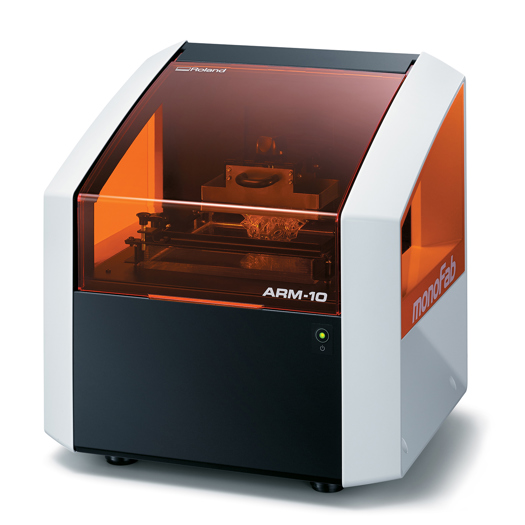The Coventry-based centre has now taken delivery of the new machine, which was launched at the Rapid 3D additive manufacturing conference, Florida, last year, and first revealed by HP in 2014. HP claims the machine can operate up to 10 times faster than existing products and can cut the cost of manufacturing parts in half. It was supplied by Europac 3D, an HP Channel Partner in the UK.
The Jet Fusion - handed the Innovation Award at London’s inaugural 3D Printing Industry Awards last month - will be housed at the MTC’s National Centre for Additive Manufacturing, which recently agreed a partnership to be the benchmarking centre for the European Space Agency. It runs a number of other 3D machines, including Stratasys Objet 3D printers and a MarkForged extrusion-based machine.
The MTC’s additive manufacturing operations manager Chris Ryall said the machine will be put through an initial evaluation period, as MTC examines how it can be used to aid smaller companies and help them save on costs. He described the purchase as the MTC’s “first step into the serious world of polymer printing and away from metals”.
“From our perspective it’s a machine that will potentially revolutionise manufacturing supply because it offers a solution to small-scale manufacturers that don’t have to go through injection mould tooling,” said Ryall.
“If you think about fidget spinners, instead of going to China to get injection mould tools made you can just print them yourselves, you don’t have to go out to someone who can help you produce that item.
“We’ve got it primarily to evaluate but if you think about a manufacturer looking at the technology, they can buy one of these, ship one around the world, and it’s simply a matter of posting the data out and printing from there," he said.
Last Thursday (13 July), MTC and Europac hosted an open day to showcase the capabilities of the Jet Fusion, which can print objects of 1,200dpi resolution at an effective building volume of up to 380x280x380mm in size, at speeds of up to 4,000cm3/hr.
It uses the same modular thermal inkjet heads that are used in a number of other HP inkjet and desktop systems and has a dual carriage design, which involves layering materials and special chemical agents in a “multi-agent printing process”.
It utilises an HP Jet Fusion 3D Build Unit for cooling after job completion and a 3D Fast Cooling Module to reduce cooling time. The software used is HP’s SmartStream 3D Build Manager and Command Center.
Ryall added: “The thing about 3D printing is that if you look at the ISO standards there are seven different ways of doing it. They are all very different and part of our evaluation process is to understand where one process fits compared to another. Some processes are fairly slow, whereas this is quick.
“It will be disruptive to the market, I have no doubt about that, but where it settles is anybody’s guess at this moment in time.”
The MTC works across a variety of industries, developing new manufacturing processes and technologies. It has other sites in Liverpool and Aberdeen.










